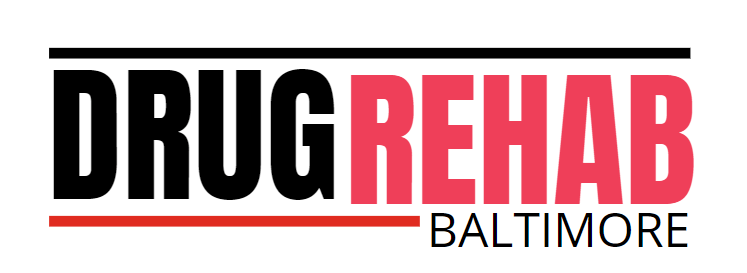Treatment Of Drug Addiction
Drug addiction (drug addiction) is a problem that is very difficult to diagnose and at the same time much more often underestimated than alcoholism or drug addiction. Meanwhile, many highly addictive drugs are available over the counter (e.g. painkillers or codeine cough syrups).
Psychoactive substances contained in drugs (including opioids, barbiturates, and benzodiazepines) interact with metabolic processes and over time become highly addictive. Self-discontinuation of medication is difficult since absenteeism symptoms appear in patients with opioid abuse, making it difficult to function normally. Detoxification and rehabilitation under the guidance of a specialist are needed in this situation.
How To Start Treating Drug Addiction?
Habitual abuse of drugs most often concerns sleeping pills, sedatives, painkillers, and doping (euphoric) drugs. Less frequently, patients become addicted to hormonal drugs.
The first step in curing an addiction is diagnosing the problem. Many people who take subsequent doses of drugs are not aware of their addiction. That is why it is so important to recognize the characteristic symptoms. The most common symptoms of drug mania are:
- problems with memory and concentration
- sleep disturbances
- unjustified anxiety or attacks of aggression
- irritability
- the body’s tolerance to the substance contained in the drugs (the patient must reach for ever-higher doses to obtain the initial effect)
People who notice troubling signs that may suggest opioid abuse should seek professional assistance. Inpatient treatment in a therapeutic facility is required in the case of severe drug abuse, where the patient is under the supervision of doctors and has restricted access to the drugs to which he is addicted.
Treatment requires progressively reducing the doses of the chemical to which the patient is addicted in order to get him out of an acute state (drug detox). This helps in overcoming the physical and psychological side effects of long-term drug use.
The next step is to diagnose the psychological background that causes reaching for subsequent doses of psychoactive substances contained in drugs and drug addiction therapy. The last stage of drug addiction treatment is usually mental support. Often the proper therapy is combined with learning relaxing techniques and work on self-realization.

Book An Appointment Now !
You can easily find us by searching for drug rehab near me that will guide you to us, to make a difference in your life by working towards making your addiction free.
How Exactly Is Drug Addiction Treated?
Overuse of drugs most often leads to mental and physical dependence. Therefore, treating drug addiction is a complex process that consists of several stages. Treatment may include:
- motivation
- detoxification
- individual and group therapy (centers use, among others, addiction therapy, the Minnesota model, assumptions of the therapeutic community)
- psychological support
The first step in treatment is to diagnose the problem, determine the substance on which the patient is addicted and perform general tests to determine what complications may have been caused by the abuse of the selected drug.
Patients who are addicted to drugs go through a series of symptoms known as withdrawal syndrome. In this case, detoxification is key. Drips are often used in opioid addiction treatment centers to help the drug leave the patient’s bloodstream. Fluid injections are used to help with detoxification. At this stage, the addict is also given substances that enable him to replenish components, rebuild internal organs, and regenerate his body. During detoxification, the opioid chain is broken.
Treatment of addiction to hypnotics and sedatives often involves gradual reduction of the doses administered so that the body does not survive the metabolic “shock”.
Drug treatment is usually combined with therapy. It can take many forms. Usually, the first step is to motivate the patient to change. Then, patients benefit from individual and group therapy. The duration and exact form of such therapy depend on the program used.
Addiction Therapy
During therapeutic meetings, patients learn about the basis of their problem, learn how the medications are taken to affect the processes taking place in the body, and analyze the psychological aspect of their disease. Together with the therapist, they also learn how to deal with the emerging “craving for drugs”.
At this stage, patients often take supplements that help fight addiction (sometimes these are drugs containing small doses of a substance on which the patient is addicted).
Therapeutic Community
People with emotional problems, depression, anxiety, and neurosis often become addicted to drugs (they usually use addictive sedatives and hypnotics containing benzodiazepines). Therefore, psychological support is very important during therapy. Addiction therapy is often combined with psychotherapy and group work.
In addiction treatment centers, the method of the therapeutic community is used. It allows you to rebuild relations with the environment, learn a new life together “sober” (without drugs). Patients (just like alcoholics) can work together, take part in workshops allowing them to gain new skills and learn. Daily activities allow you to focus on aspects other than the addiction itself.
Why Is It Worth Taking Advantage Of Treatment At Drug Rehab Baltimore?
Drug Rehab Baltimore addiction therapy center provides comprehensive treatment for drug addicts. Detoxification and addiction therapy is used in the treatment of opioid addiction (group and individual). We employ a patented software that integrates a number of psychological assumptions (we use, among others, elements of the Minnesota model and treatment by creating a therapeutic community).
We provide patients with the professional care of medical personnel (experienced doctors, qualified nurses), pharmacological treatment, and therapy conducted by certified specialists with many years of experience in working with addicts.
LOCATIONS SERVED
Baltimore City, Baltimore County, Carroll County, Anne Arundel County, Cecil County, Harford County, Howard County, Queen Anne’s County
Phone
(667) 215-5549
info@drug-rehab-baltimore.com
Hours of Service Operations:
Monday - Friday: 7am - 10pm EST
Saturday: 8am - 10pm EST
Sunday: 7am - 9pm EST
